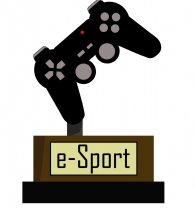Introduction to eSports
Wednesday, August 22, 2018 - 09:00

Whether or not you believe that eSports, or competitive video gaming, is a real sport or that gamers are athletes, its popularity and how it is being developed within the sport industry can not be ignored. For some amateur sport organizations, eSports may be seen as a competitor to traditional sports. However, it may also be an opportunity, particularly for multi-sport organizations like university athletics or multi-sport games, to expand their playing and spectating opportunities to include eSports participation.
How it works
- eSports are online games played in a player vs. player, team vs. team, or “last one standing” competition format.
- While athletes can participate in eSports remotely (playing over Internet connections), in-person competitions are becoming increasingly popular among amateurs and are the norm for professional eSports athletes.
- There are different types of eSports. The most popular ones are multiplayer-online battle arenas (MOBA; e.g., Dota 2; League of Legends), first-person shooters (e.g., Doom), real-time strategy (e.g., Warcraft), racing, and sports (e.g., NBA 2K; Madden).
- Fans of eSports can watch competitions over dedicated video streaming services such as Twitch, or in a format that is similar to traditional cable sport broadcasting such as TSN or ESPN video streams.
- The competition aspect of eSports makes them highly social, with both positive (comradery, teamwork) and negative (bullying) aspects present.
- In an effort to establish their personal brand to gain followers, sponsorships and scholarships, experienced eSports athletes broadcast their online gameplay, including video and audio content of the athlete explaining tactics. This may lead to scholarships to join University teams, or contracts to play eSports professionally.
- Game developers operate as de facto league commissioners, setting rules for the games, including making special builds of the games to run on specified computer hardware in order to enforce league rules.
The popularity of eSports can be seen in its global spectatorship, inclusion in high-profile multi-sport events, support from professional sport levels, and development at the college / university level. For those unfamiliar with eSports and its popularity, we have provided some current facts and figures on the sport.
Did you know?
eSport Basics
- It is estimated that 395 million people follow eSports globally. Viewers tend to be younger, with 60% between 25-39 years of age.
- The largest market for eSports is Asia, in particular China.
- Like other sports, eSports is growing in popularity with female fans. It is estimated that women and girls make up 38% of the eSports fan market.
eSports and Major Games
- The 2018 Asian Games has introduced eSports as demonstration sports, with a plan for the 2022 Asian Games to introduce eSports as official medal events.
- The organizing committee for the 2024 Summer Olympics in Paris is considering adding eSports as a demonstration sport.
eSports and Professional Sport
- NBA 2K League is sponsored by the National Basketball Association, and is covered by the NBA broadcast partners (e.g., TSN). In addition to technology and gaming partners and sponsors, they also have established partnerships with some core NBA partners such as StateFarm, NewEra, and Nike.
- The National Hockey League is also getting onboard with the upcoming 2018 NHL Gaming World Championship. It is interesting to note that the gaming championships is part of the fans’ section of the NHL website (also where the fantasy leagues are posted), but is not linked in the main navigation of the site.
- Major League Baseball teams are investing in eSports companies (e.g., Yankees).
eSports and Universities
- The National Association of Collegiate eSports was formed in 2016 and is the governing body for eSports at the university / collegiate level in the United States).
- There are approximately 1,500 student-athletes in competitive gaming in the United States.
- Over 50 American universities and colleges offer scholarships to eSport athletes. This group includes Division I NCAA schools like Boise State, Georgia State, Miami (Ohio) University, University of California-Irvine, University of Utah, and Western Kentucky.
- UC Irvine built a eSport competition facility called the UCI Esports Arena.
- St Clair College in Ontario is developing an academic program in competitive online gaming for 2019.
- Some Canadian post-secondary institutions are starting to develop eSport as part of their intramural offerings, such as Southern Alberta Institute of Technology and University of New Brunswick.
Based on these trends, significant growth in viewership and revenues is expected in eSports. We can choose to debate how eSports fits into traditional viewpoints of sport and athlete, but doing so will not change the fact that eSport is being accepted by existing professional and elite amateur sport organizations, media partners, and sponsors as an opportunity to engage with participants and fans. The technology-mediated aspect of the competition introduces new opportunities for participation among under-represented populations, which may complement existing sport participation models. We are on the cusp of a fundamental change in how sport is defined, mediated, delivered, and consumed. The opportunities for using eSport as a gateway to new modes of sport and recreation participation are immense. Those that leverage their existing infrastructure and human capital have an opportunity for engaging eSports athletes and fans within their organizations; those that ignore eSports may find themselves left behind.
About the Authors – Larena Hoeber is a Professor in the Faculty of Kinesiology and Health Sciences. Orland Hoeber is an Associate Professor in the Department of Computer Science at the University of Regina.